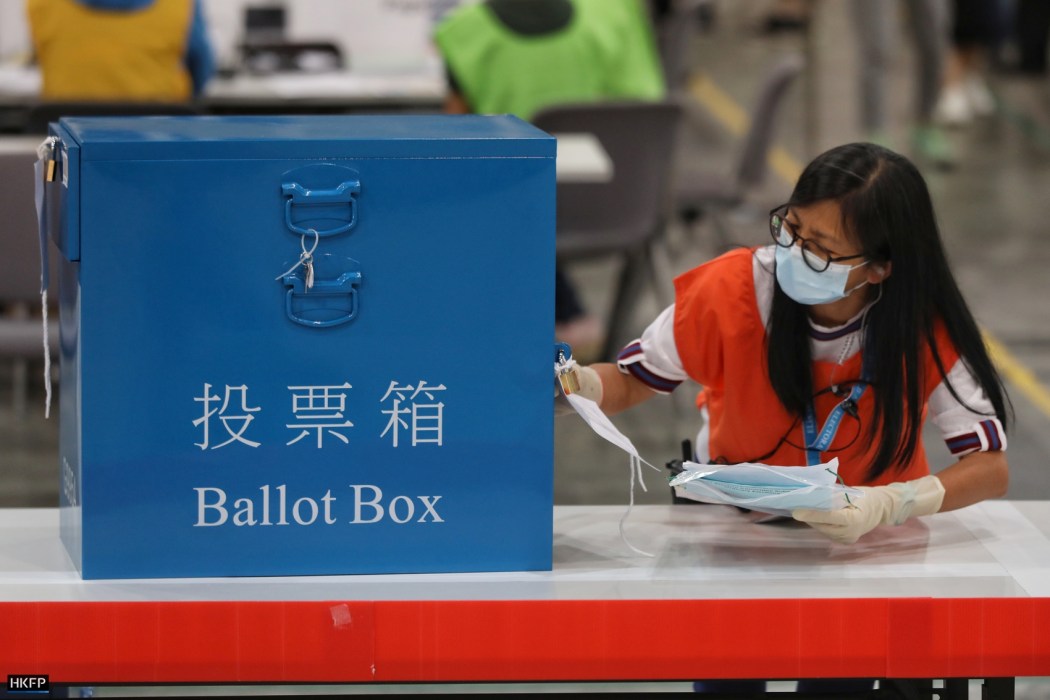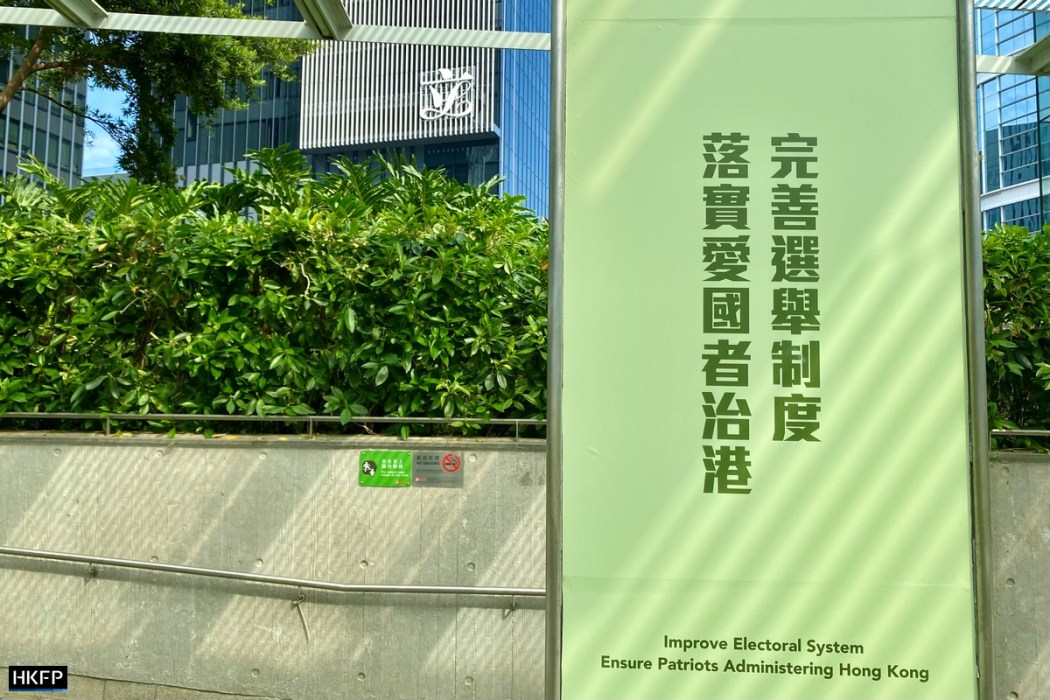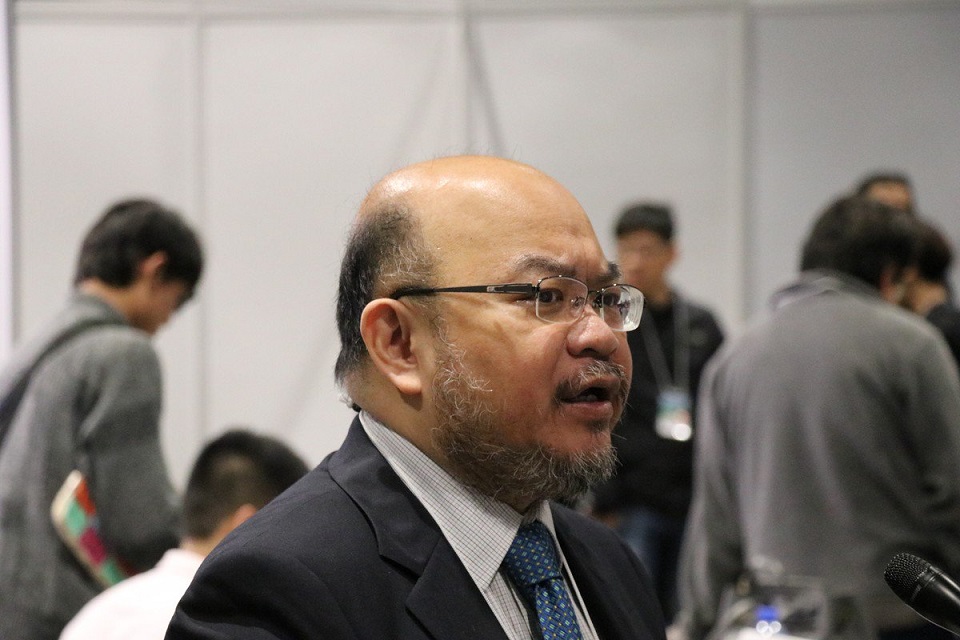The Hong Kong government’s plan to set up polling stations at the city’s borders with China may not attract a lot of voters in the mainland to cast their ballots in the upcoming “patriots-only” legislative election, a local political scientist has said.
Officials in Hong Kong are liaising with mainland authorities to firm up the arrangements for allowing Hong Kong voters living across the border to get around Covid-19 travel restrictions and take part in next month’s Legislative Council (LegCo) election amid the pandemic.

Polling booths may be set up at various border checkpoints, Permanent Secretary for Constitutional & Mainland Affairs Roy Tang revealed in an online seminar on Saturday. Voters may return to the mainland after going to the polls and avoid undergoing compulsory Covid-19 quarantine, he said.
Tang said the government had studied the feasibility of establishing voting stations in the mainland, but the idea was ruled out as Hong Kong’s electoral laws require that polling must take place within the city’s boundaries.
A poll conducted for HKFP in October last year showed only 17 per cent of Hongkongers backed the proposal.
Chief Executive Carrie Lam pledged on Saturday that the government will make an announcement “as soon as possible.” The Registration and Electoral Office said last Friday that it is “making necessary preparations,” but the election’s operational arrangement – whether it includes setting up border polling stations – would be coordinated by the mainland affairs bureau.

The LegCo race scheduled for December 19 is Hong Kong’s first general election under revamped rules set out by Beijing to ensure only “patriots” rule the city. The sweeping overhaul passed in May slashed the ratio of directly elected legislative seats to around 22.2 per cent, while election hopefuls had to go through multiple rounds of national security checks.
The government and pro-Beijing figures have hailed the election as “having competition,” with “broadly representative” candidates. But some elections experts said the absence of candidates from traditional opposition parties means the race “will only see limited competition.”
Boosting voter turnout rate
Political analyst Ivan Choy of the Chinese University of Hong Kong (CUHK) told HKFP on Monday that the proposal on border polling booths showed the government was “thinking of different ways” to boost turnout, which is widely predicted to be lower than previous polls.
But the scholar doubted the effectiveness of such a move, saying it would be “quite demanding” for electors in the mainland to take hours-long trips from their home provinces and cities to cast a ballot at the border checkpoints.

“I believe the amount of people who would have the heart to go all the way to the boundary to vote would not be a lot,” Choy said. “It’s hard to imagine a person based in Shanghai or Beijing would go to those boundary control points to vote.”
The CUHK scholar went on to say that allowing voting at the boundaries will have “less impact” on mainland citizens. Earlier proposals of setting up polling facilities in different Chinese provinces may prompt the local residents to “reflect on their democratic rights,” he said.
The Legislative Council Ordinance stipulates that Hong Kong election officers may strike off an elector if such a person “no longer ordinarily resides in Hong Kong.” Asked if allowing Hongkongers based in the mainland to vote at the boundaries would breach the rule, Choy said the controversy existed before the latest proposal.
“Some voters who live in Agile or Country Garden [residential estates in Guangdong]… they have always voted. [It is an issue] with or without border polling,” he said.
Support HKFP | Policies & Ethics | Error/typo? | Contact Us | Newsletter | Transparency & Annual Report | Apps
Help safeguard press freedom & keep HKFP free for all readers by supporting our team

LATEST FROM HKFP
HKFP has an impartial stance, transparent funding, and balanced coverage guided by an Ethics Code and Corrections Policy.
Support press freedom & help us surpass 1,000 monthly Patrons: 100% independent, governed by an ethics code & not-for-profit.










